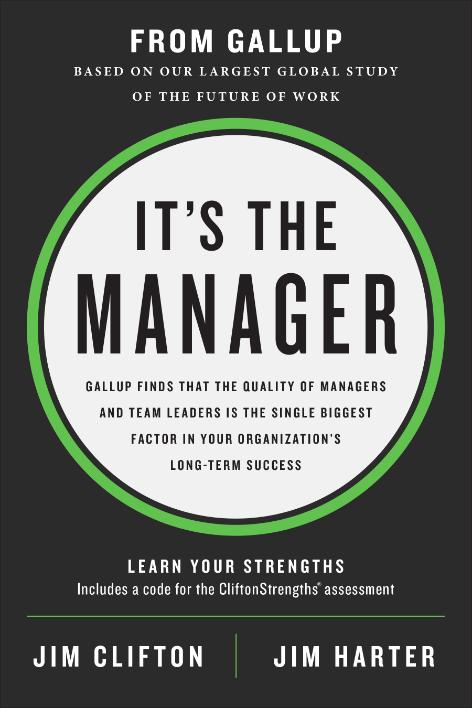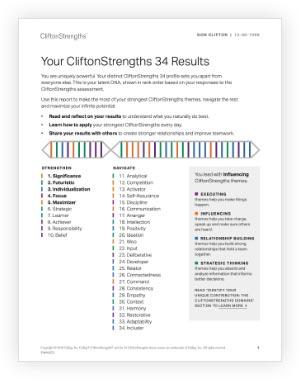Story Highlights
- Overemphasizing emotional intelligence interferes with performance development
- Some people have a lot of emotional intelligence, some have a little -- both are OK
- The best employee development plans account for a broad array of talents
Psychologists Peter Salovey and John D. Mayer coined the term "emotional intelligence," or EQ, in 1990. Describing it as "the ability to perceive emotions, to access and generate emotions so as to assist thought, to understand emotions and emotional knowledge," the concept immediately caught fire.
Suddenly everyone was wondering about their own EQ. Leaders were scrutinizing their team members for it, HR was deeming it a quality to hire for, and those who couldn't do math but could do small talk started feeling much better about themselves.
As well they should. The ability to chat amiably is useful, especially in today's globalized, diverse and matrixed workplace, where relationships are vital to productivity. But that's only one of the useful qualities associated with EQ, obviously. To decode and capitalize on the rest, companies have been buying EQ appraisals almost since Salovey and Mayer introduced the concept.
EQ appraisals vary in scientific validity, but some are quite informative -- particularly the appraisals that offer genuine 360 modeling (one of the problems associated with minimal EQ is the inability to perceive oneself as others do) and individualized feedback.
However, it's one thing to know you're great at sensing others' needs or lousy at changing the emotional temperature of a crowd. It's another thing to use that information to produce profit.
Is your EQ appraisal additive? Or just interesting?
Profit, naturally, is what organizational EQ programs hope to achieve. The problem is that while appraisals may give the appraised accurate and valuable insight, insight isn't development. Development has a goal: improved performance. Performance improves profitability. And most organizations don't do performance development well at all.
Gallup finds that only 27% of workers strongly agree that the feedback they receive helps them do their work better and just 19% strongly agree that they have talked to their manager about steps to reach their goals. And most performance reviews and approaches to feedback are so poorly done that they make performance worse about a third of the time.
So, to use the insights of an EQ appraisal in the workplace productively, companies would first have to create development plans that actually improve performance. Without outcome-focused development plans around them, EQ results are more interesting than additive.
To use the insights of an EQ appraisal in the workplace productively, companies would first have to create development plans that actually improve performance.
A good development plan, as rare as it is, is a partnership between employee and manager that maps the future according to the employee's abilities and the business' needs. EQ is just one aspect of the employee's abilities.
And maybe the least important one.
Don't obsess about EQ.
Every employee is great at something -- strategic thinking, maybe, or staying on task -- and every employee is bad at something. That's how talent works. But EQ assessments are built to measure only one general kind of talent, "the ability to perceive emotions." Other qualities are not detected by EQ assessments, but they can have a huge impact on the employee's effectiveness.
Those qualities -- the CliftonStrengths assessment refers to them as talents -- are innate, unchangeable and really powerful. They predict how people operate in the workplace and indicate areas of greatest potential (and least potential as well). People who work within their talent set, Gallup finds, are 8% more productive and 15% less likely to quit their job. And companies that develop their employees' strengths achieve, on average:
- 10% to 19% increased sales
- 14% to 29% increased profit
- 3% to 7% higher customer engagement
- 9% to 15% increased employee engagement
EQ is part of that talent set, but only part. And if EQ is the only thing the manager focuses on, the manager overlooks qualities that drive performance and generate profit.
For instance, a worker can have tremendous capacities for hard work and logic but become an inarticulate wreck when confronted with surprise small talk. He simply doesn't have much EQ talent. If his manager pushes him to concentrate on improving his EQ, they'll both be disappointed. In fact, he's likelier to feel like he has an unfixable flaw and an impossible boss than to get better at emotional stuff. And his company loses out on the value his innate talents provide.
If EQ is the only thing the manager focuses on, the manager overlooks qualities that drive performance and generate profit.
Managers can make mistakes with high-EQ employees too. Talents can look alike but act differently. The CliftonStrengths theme of Developer, for example, takes into consideration the unique talents a person has and seeks ways to develop that talent. While someone who is emotionally intelligent would pick up on the social aspect of this talent, the ability to actually put it to good use may be lacking.
But EQ appraisals aren't calibrated to the workplace like CliftonStrengths is. Or, to be excruciatingly specific, EQ appraisals aren't calibrated to the subtle differences in human neurology that affect performance under various conditions on an individual level, and thus offer little or no predictive capacity for workplace outcomes like CliftonStrengths does -- so the appraisal doesn't much help managers effectively individualize, coach or direct development.
EQ is only part of the story.
This is not to say that EQ is unimportant. It's very useful -- but some people have a lot, and some people don't. And as Gallup research has consistently shown, a manager can't put in what nature left out.
Managers can create development plans that help those with minimal EQ manage around it and leverage their other strengths. And managers can create development plans for workers who got a full scoop of EQ but shafted on other abilities. Indeed, managers must.
As Gallup research has consistently shown, a manager can't put in what nature left out.
Development plans that incorporate all of an individual's talents are far likelier to result in higher per-person productivity than plans that fixate on some personality traits and neglect others.
Which is why those who believe an EQ score is the last word in talent assessment are missing part of the story and most of the value. We're a mixture of a lot of talents, and we bring all of them to work. Those talents can -- if they're developed -- improve performance and boost profit.
So those who revel in small talk should be commended! And so should those who loathe it. There's nothing wrong with either type of person -- only with misguided development that overlooks real value and lets performance potential go to waste.
Learn more about CliftonStrengths and the employee experience, and how we can help you with your performance development strategy:
- Learn why your workplace must lead with CliftonStrengths at the heart of its culture.
- Download our Leading High-Performance Teams course overview to learn how your managers can help employees make the most of their CliftonStrengths.
- Get your copy of It's the Manager to read Gallup's 52 greatest breakthrough discoveries about the practice of management and to learn how leaders can meet the needs of a rapidly changing workforce.


